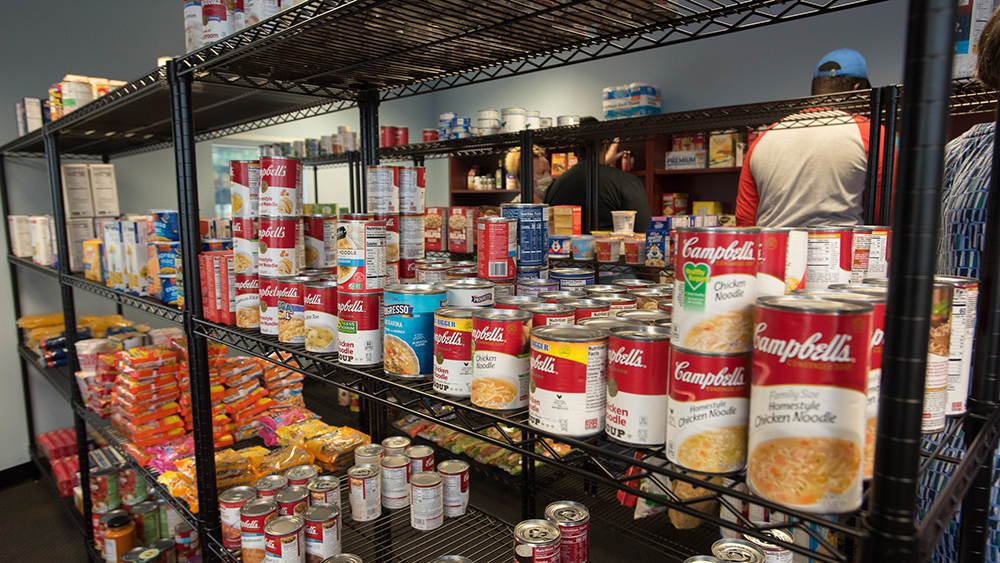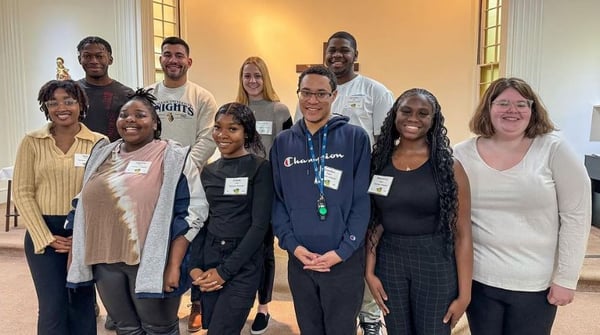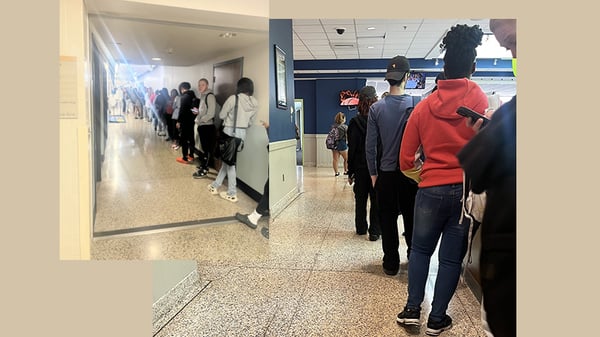A reduction in dining services led to long lines and hangry students last semester, but now the...
Universities Take Action Against Student Food Insecurity

Imagine being a student and not having enough food to eat at times. This is a major issue for many college students.
Across the country, one out of every three students is affected by this problem. However, several universities are now trying to provide more support. They are receiving more funding from the state to ensure that students have enough to eat.
In this difficult situation, students suffer not only from academic pressure but also the stress of not knowing where their next meal will come from. It interferes with the ability to perform well academically and stay in school as well as jeopardizing overall well-being.
According to the United States Department of Agriculture, food insecurity among Pittsburgh college students is more than double that of the average U.S. household. Many Pittsburgh students are anxious about the lack of food or where they will get their next meal.
Some students are forced to skip meals or eat very little because they cannot afford enough food. This makes it difficult for students to concentrate on their academics, makes it stressful to perform well in school, and has an impact on students' social lives.
Luckily, several colleges are receiving additional state funding to ensure that students have enough food. With this funding, universities are setting up special areas on campus, such as food pantries, where students can receive free food. Others are growing their own food on campus in order to provide students with fresh and healthy options.
In addition, some colleges are educating students about food insecurity. They want to make sure that students are aware of the services available to them, such as on-campus food pantries. Universities also aim to teach students how to manage their budgets and meal plan options.
Neumann University has addressed the issue of food insecurity by setting up a Knights Pantry, which offers services to help reduce food insecurity, enhance health and wellbeing, commit to decreasing food waste, and encourage sustainability. The use of the Knights Pantry and its resources is open to all Neumann students, ensuring a warm and welcoming atmosphere.
In conclusion, tackling food insecurity among college students is an important step forward in creating a positive and beneficial environment. It is important that no student has worries about not having enough to eat. University efforts to create places where students can get free food, as well as creative approaches such as community gardens, have a significant influence.
This helps students to be healthy and focused on their schoolwork. Universities are trying to break down the barriers that prevent students from accessing the meals they are required to through education and outreach. By doing all these things, universities demonstrate that they care about their students and want every student to succeed.


.png?width=600&name=2021_09_08_KM0073%20(1).png)

